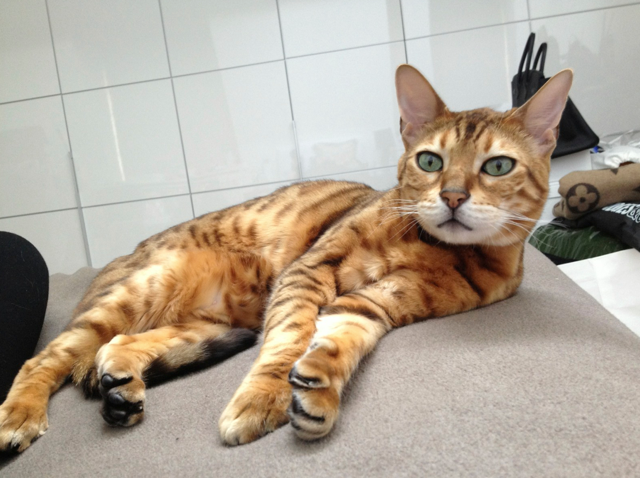Humans and canines aren’t so different after all, at least regarding what makes us sick. About 6 million dogs are diagnosed with cancer each year, and dogs get canine versions of rare human disorders like the brain-wasting neuronal ceroid lipofuscinosis that leads to the inability to walk or control their muscles.
If you have cancer, diabetes, or epilepsy, your dog might be the first to know. Studies have shown that dogs can be trained to sniff out cancers of the lung, breast, skin, bladder and prostate. Researchers suspect the canines are picking up on extraordinarily faint scents given off by the abnormal cells.
Dogs are also being increasingly used as service animals for people with diabetes, whose health can be harmed when their blood sugar peaks or drops. Specially trained dogs can detect the scent of these fluctuations (sweet for high blood sugar, acidic for low) and alert their owners before they even feel symptoms.
Most mysterious of all are scattered reports that dogs can predict an epileptic seizure 45 minutes before it begins. No one knows what the dogs might be picking up on, but theories range from an unknown smell to subtle behavioral changes.
Dogs can be as smart as 2-year-old children, according to research presented in 2009 at a meeting of the American Psychological Association. Border collies are the top dogs in the intelligence category, with some in the breed capable of understanding up to 200 words. Poodles, German shepherds, Golden retrievers and Dobermans round out the top five smartest breeds. (The most popular breed in America, the Labrador retriever, comes in at number seven.)
Older breeds like hound dogs, bulldogs and beagles are among the slow learners of the doggie world, the researchers reported. Unlike newer dog breeds, which are designed for companionship and sociability, old breeds were bred to sniff and hunt, perhaps giving them more brawn than brain.
We’ve all heard the saying that dogs’ mouths are cleaner than humans (they’re not), but in reality, dogs can carry pathogens that harm humans. Rabies, a fatal neurological disease, is the most famous, though vaccines, mandated by law in most states, can stop the spread. In a few cases, dog food has been known to cause food poisoning in humans, thanks to contamination by Salmonella bacteria. Perhaps creepiest of all is a 2003 study published in The Veterinary Record, which found that humans could contract the parasitic roundworm Toxocara canis just by stroking an infected dogs’ fur. The roundworm, which grows in dogs’ intestines, can grow in the back of the eye in humans, causing blindness. They also sometimes take up residence in human livers and lungs.
Roundworm infections in humans are rare, and proper veterinary care can ensure that dogs stay worm-free. Still, British veterinarian and study co-author told New Scientist magazine in 2003, hygiene is important for dog owners. “Wash your hands before meals,” he told the magazine, “and especially after a good cuddle.”
Those puppy-dog eyes your dog gives you when you tell him off for knocking over the garbage can for the umpteenth time aren’t a sign of guilt, researchers say. He’s just responding to your different body language and voice. When dog owners thought their dogs had eaten a forbidden treat and reprimanded them, the pooches looked just as “guilty” regardless of whether or not they had actually eaten the treat. In fact, dogs who were wrongly accused of snack-snatching often looked guiltier than dogs who had really eaten the treat. Turns out those soulful eyes don’t reflect any soul-searching, after all.
